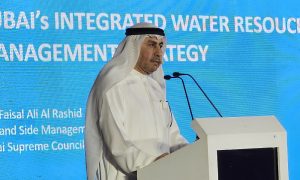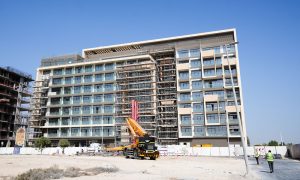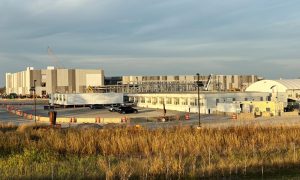Acwa Power signs agreements for $700m Rabigh-3 IWP
Desalination plant is one of the world’s largest independent water projects

Acwa Power has announced that it’s consortium with Saudi Brothers Commercial Company (SBCC), has inked financing and hedging agreements for the Rabigh-3 independent water project (IWP). The $700m project is billed as one of the world’s largest seawater reverse osmosis (SWRO) desalination projects and, on completion, it will process 600,000cu/m of water per day.
A new commercial entity, Rabigh Three Company (RTC), has been set up with Acwa Power standing as the major stakeholder of the plant, with 70% of the shares. The remaining shares have been allocated to SBCC.
According to a statement, the EPC contract for the project was awarded to a consortium of SepcoIII (Power China), Abengoa and Sidem (Veolia), while an operations and maintenance agreement was signed with Rabigh Water Production Services Company, an affiliate of First National Operations & Maintenance Company (NOMAC).
An offtake agreement was also signed with Saudi Water & Electricity Company (WEC). The agreement was signed in December by Engineer Abdulrahman bin Abdulmohsen Al Fadley, Minister of Environment, Water and Agriculture and WEC Chairman.
“As this region embarks on an extensive desalination capacity procurement programme, with four large projects already in the market and a number of additional projects in pipeline, we are proud to have closed Rabigh-3 as a demonstrator for how the recent price and technology evolution in reverse-osmosis (RO) desalination has made this an affordable and efficient solution for potable water production for countries around the region,” said Acwa Power president and CEO Paddy Padmanathan.
Padmanathan says the project will cater to the demand for water in the Makkah and Jeddah areas of the Kingdom.
He added, “This will ensure consistent, reliable and steady water supply to the citizens of the two cities and village, especially during demand peak periods such as Ramadan and Hajj seasons. The project will also create new employment opportunities in fields including construction, operations and maintenance as well as enhancing the local capabilities in terms of local content.”
The plant is expected to begin commercial operations by the end of 2021.





















